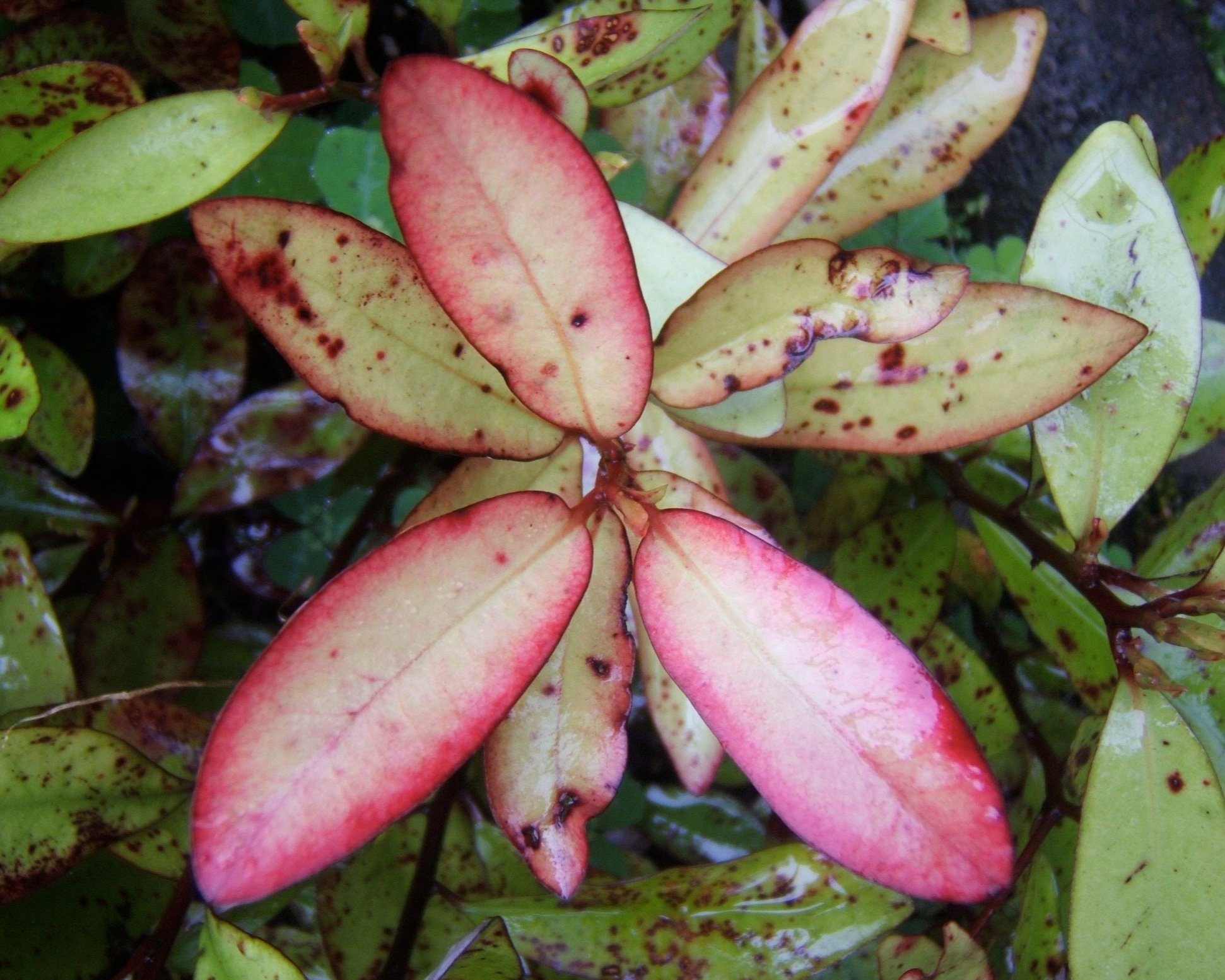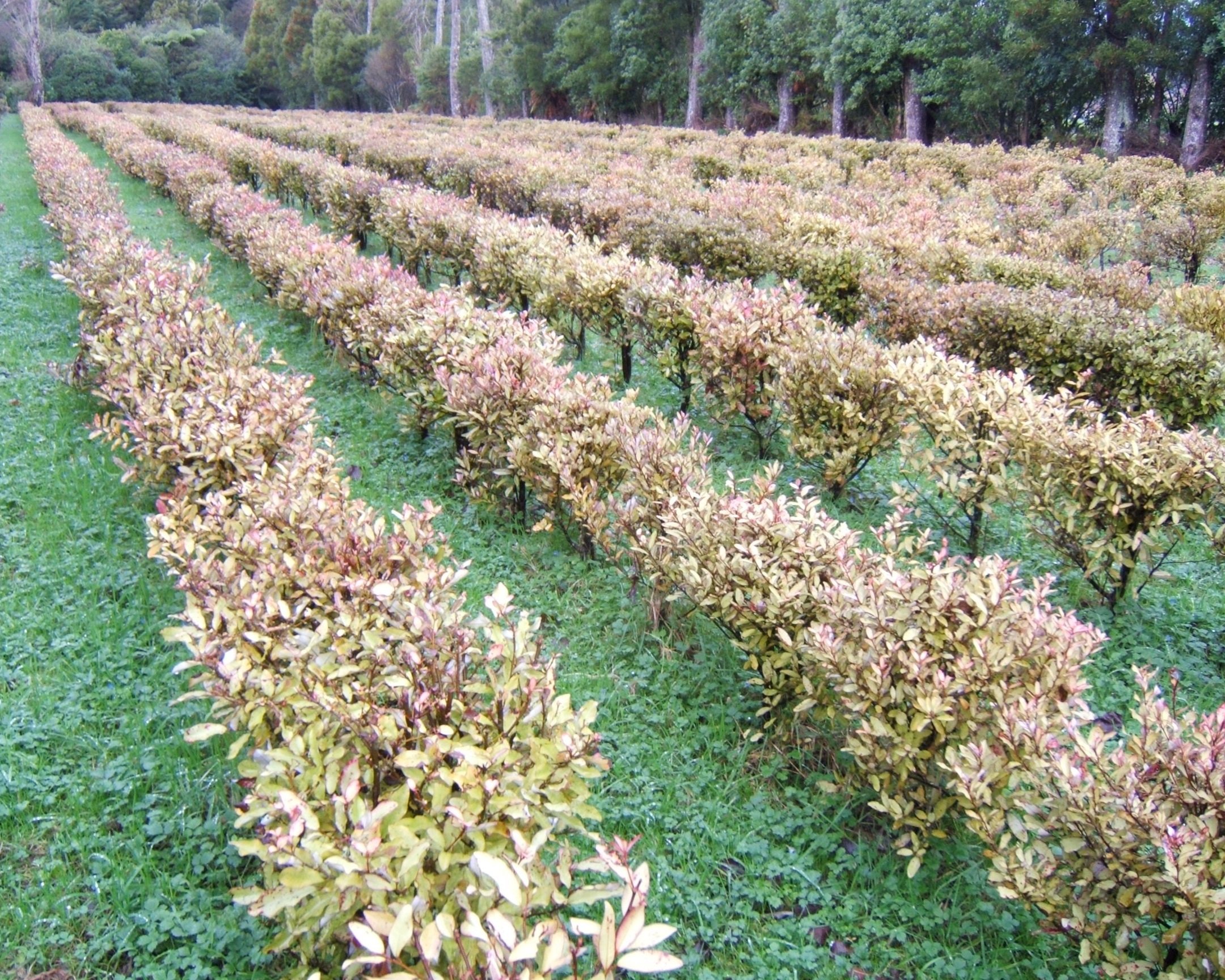
Horopito,
New Zealand’s
Herbal Hero.
The Horopito Experts.
Forest Herbs Research combines the breakthroughs of modern science together with the wisdom of traditional healing to bring Horopito to the world. Since the 1970’s we have been the driving force behind modern-day use of Horopito.
Horopito (Pseudowintera colorata) is an ancient shrub, over 65 million years old. It is endemic to New Zealand, and it is known as the pepper tree due to the hot peppery taste of the leaves. It is a slow growing plant and prefers the dappled light in the New Zealand rainforest.
Polygodial is the key active in Horopito that is responsible for its health benefits including its antifungal activity.
Pioneering research showed that the polygodial in Horopito was stronger and faster acting than amphotericin B (a common pharmaceutical antifungal)¹. This scientific discovery was a key driver for Forest Herbs Research to continue its own research into this amazing herb and cultivate the only commercial plantation of Horopito globally.
Traditional Use of Horopito.
Horopito has a rich history of medicinal use by New Zealand’s indigenous Māori. It was used for a wide range of ailments including fungal skin diseases, venereal diseases, toothache, and stomach complaints. Due to its painkilling properties, Horopito is honoured with the name “Māori painkiller”.
European settlers also recognised the healing properties of Horopito using it in a medicine to treat “stomach sickness”. Given its importance in New Zealand’s early medicinal practice, it is not surprising that researchers wanted to learn more about this fascinating herb.
Modern Day Use of Horopito.
Science has revealed the secrets behind Horopito’s healing powers which include antifungal, antibacterial, and anti-viral properties.
Horopito is the hero in natural healthcare products that treat conditions such as vaginal thrush, jock itch, athlete’s foot, candida and other digestive imbalances. Horopito has a shining reputation globally for providing fast, effective and natural relief from fungal overgrowth.
For more information on Horopito’s use today, view the Herbal Monograph (updated version coming soon).
Antimicrobial Properties of Horopito.
Antifungal - Horopito strongly inhibits many species of fungi ²,³, most notably Candida albicans which is often the cause vaginal thrush.
Horopito’s ability to kill Candida has been found to be faster acting and stronger than the pharmaceutical antifungal Amphotericin B and is equal to or better than another pharmaceutical antifungal called Itraconazole.⁴,⁵
Horopito creams, washes and supplements are often used in the treatment of vaginal thrush.
A webinar for practitioners about Horopito as a novel therapy for Candida overgrowth can be viewed using the link below.
Anti-viral - Horopito can kill the virus that causes cold sores (Herpes Simplex Virus-1). In patented research, Forest Herbs Research found that Horopito has exceptional anti-viral properties. Consumer research has found Horopito ointment is an effective cold sore treatment.
Antibacterial - Horopito is an all-rounder when it comes to its anti-microbial powers. In addition to its antifungal and anti-viral properties, polygodial has antibacterial activity against both gram-positive and gram-negative bacteria,⁶ making it an excellent choice as an all-round anti-microbial agent.
Commercial Cultivation & Sustainability.
Forest Herbs Research is the only company in the world to have its own Horopito plantation. The plantation is nestled at the top of New Zealand’s South Island, where it is surrounded by pristine native forest. The growing conditions are completely unique, providing all the elements Horopito needs to thrive.
The farm is planted with proprietary strains of Horopito that were selected for their high level of polygodial (the active in Horopito). Each step of the supply chain is tightly managed to ensure freshness, quality, and potency from farm to customer.
The passion for plants extends to protecting the environment where eco-friendly, sustainable farming techniques are used. Added to this commercially grown Horopito also protects wild populations as wild harvesting can endanger sensitive forest eco-systems.
Quality Assurance & Polygodial.
It is important to ensure that the Horopito used in the production of natural health products and pharmaceuticals is active in polygodial.
Forest Herbs Research has developed proprietary techniques in its Horopito production to ensure the highest levels of polygodial are retained. Extraction techniques have been carefully developed and focused on maintaining polygodial activity.
Polygodial stability can be easily affected by a number of factors including harvesting, storage, and formulation excipients, therefore careful management of all these factors is required. It is important to note Polygodial is not stable within alcohol solutions.
The Horopito Logo is the gold standard for authentic, premium quality, active Horopito that has been independently tested for polygodial activity.
This logo provides assurance that the Horopito is sustainably sourced from Forest Herbs New Zealand farm and is active in polygodial to deliver effective dosage levels.
References
1. McCallion RF et al. Antibiotic compounds from New Zealand plants, II: polygodial, an anti-candida agent from Pseudowintera colorata. Planta Med 44:134 1982.
2. Lee SH et al. In vitro antifungal susceptibilities of Candida albicans and other fungal pathogens to polygodial, a sesquiterpene dialdehyde. Plant Med. 65:204-8. 1999.
3. Nakajima, J., Papaah, P., Yoshizawa, M., Marotta, F., Nakajima, T., Mihara, S., & Minelli, E. (2007). Effect of a novel phyto-compound on mucosal candidiasis: Further evidence from an ex vivo study. Journal of Digestive Diseases. 8, 48-51.
4. Kumari, A., Bishier, M. P., Naito, Y., Sharma, A., Solimene, U., Jain, S., Yadava, H., Minelli, E., Momella, C., & Marotta, F. (2011). Protective effect of an oral natural phytonutrient in recurrent vulvovaginal candidiasis: a 12-month study. Journal of Biological Regulators and Homeostatic Agents, 25 (4), 543–551.
5. Chopra V., Marotta F., Kumari A., Bishier M.P., He F., Zerbinati N., Agarwal C., Naito Y., Tomella C., Sharma A., Solimene U. (2013) Prophylactic strategies in recurrent vulvovaginal candidiasis: a 2-year study testing a phytonutrient vs itraconazole. Journal of Biological Regulators and Homeostatic Agents, 27(3):875-82.
6. McCallion RF et al. Antibiotic compounds from New Zealand plants, II: polygodial, an anti-candida agent from Pseudowintera colorata. Planta Med 44:134 1982.
7. Kubo, I., Fujita, K., Lee, S. H., & Ha, T. J. (2005). Antibacterial Activity of Polygodial, Phytotherapy Research, 19, 1013-1017






